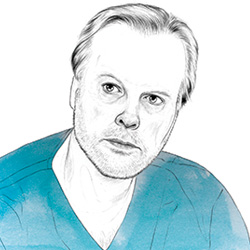Psychological Support for Syrian Refugees
John Thoburn, Professor of Clinical Psychology, School of Psychology, Family, and Community
 John Thoburn
John Thoburn
In 1987, John Thoburn helped train Ugandan Episcopal priests in basic traumatology. In the years since, he has mobilized to disaster-stricken communities in countries such as Bosnia, China, Haiti, Sri Lanka, and now in Jordan, among Syrian refugees.
Thoburn and Kira Mauseth PhD ’08 traveled to the Middle East in March 2013. They spent 10 days working with refugee families of the Syrian conflict living in Jordan, providing them with support and training local volunteers in sustainable psychological relief. Their original Health Support Team curriculum was created after a 2010 deployment to Haiti for post-earthquake support.
Thoburn and his group — which now includes two current clinical psychology graduate students from his SPU research team, Jessa Carlile and Noel Brown Clark ’09 — returned to Jordan in September 2013.
“Many of the Syrian refugees we work with have been imprisoned, tortured, and seen family members killed before their eyes,” Thoburn says. “The refugee camps are overpopulated, short on basic resources, full of disease, and rampant with violence. Most of the refugees are in constant fear, not knowing what happened to their loved ones. There is a higher incidence of Post- Traumatic Stress Disorder than we have seen in other places.”
Partnering with CARE International and another humanitarian agency, Under My Olive Tree, Thoburn and his team are working to develop the Health Support Team curriculum to meet the needs of diverse peoples.
Clark, who majored in psychology and minored in global and urban ministry, says that “the work in Jordan is deeply rooted in my faith. Jesus said feed the hungry and heal the sick. His gospel was tangible.”
